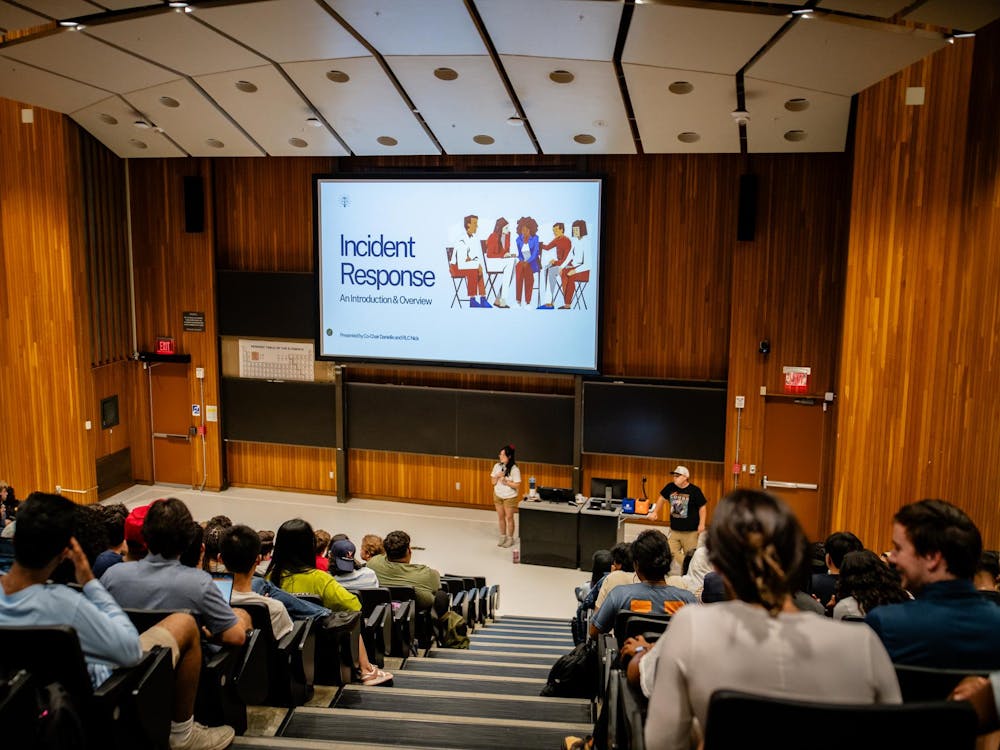DON'T CALL me. Ever. Maybe you are just tired of picking up the phone to hear a computer clicking on the other end. Or perhaps you no longer want to make excuses not to speak with those poor dears trying to sound so natural while reading a scripted sales pitch to you on the phone. Either way, you soon won't have to worry about that anymore. Such is the spirit of the newly employed nationwide "do not call" list. In the first few days that this service became available, millions designated themselves as full-fledged members of this anti-telemarketer club. The free service, offered by the Federal Trade Commission, grew to more than 10 million members in the first four days of its existence and apparently had 158 consumers every second rushing to sign up on the first day of its opening. Though the service is highly popular and was brought to the American public direct on demand, the FTC could have focused on some more realistic aspects before endorsing such a list.
If you haven't heard it on the news or seen the clips of President George W. Bush bashing the telemarketing industry, the national do not call list is a list of phone numbers that will be off limits to telemarketers selling products. By Oct. 1, those who have signed up with the do not call list should expect to see a noticeable decrease in the number of calls that they receive from telemarketers.
Though a great step towards protecting the privacy of consumers in their own homes, some do not expect the list to be very realistic in its goals. The service claims that it will stop up to 80 percent of telemarketing calls from reaching your home. However, political organizations, charities, telephone surveyors, insurance businesses and any companies that you have previously held a business relationship with are all welcome to call your home for their own purposes. All of these people will undoubtedly continue to call, and there has not been extensive research comparing the proportion of these calls to other sales calls. Basically, there really is no way to fully escape unwanted calls to the home.
Of course, all of these efforts are being made to give consumers control and choice in the matter of who calls their home. Still, what about the telemarketers? According to Louis Mastria, a spokesperson for the Direct Marketing Association, the do not call list could potentially cut the telemarketing business industry in half, resulting in a loss of $50 billion dollars in sales. More importantly, there is a very bleak outlook as to the number of people holding telemarketing jobs will eventually be affected by the do not call list.
According to the FTC, there are 166 million residential phone numbers in the United States. Of this number, more than 60 million are expected to be registered within the full first year of this service. Ultimately, if the results of the industry are as predicted, thousands of people could potentially be unemployed by the end of this year alone. Either that will occur, or some loopholes in the system will have to be found quickly. Perhaps rumors of telemarketing companies filing suit against the FTC may turn into reality.
Further, the FTC had no idea that so many people would be so aggressive and insistent about getting on this list. Consumers have been hindered with problems ranging from the "do not call" Web site being sluggishly responsive -- unable to handle the number of people at the site -- to e-mail clients blocking confirmation emails as spam. The FTC would have come under more scrutiny from telemarketers if the list had been the opposite of what it restricts now, requiring only those who wanted telemarketing calls to sign up for them, but it most certainly would have been easier. Not to mention, if a telemarketer continues to call you and you have signed onto the list, you have to take down basic information and make the effort to report them yourself. Whatever happened to politely hanging up the phone?
They're intrusive, they're annoying and they're trying to make a living like everyone else. This do not call list has been advertised like a wonderful solution to a "major" problem, but the whole thing is ridiculous, especially the criticism of the telemarketing industry. Unfortunately, there is almost inevitably going to be a backlash for someone, and in this case, it is going to be the people employed in the industry. They may not be calling anymore, but the FTC needs to prepare that there may be serious consequences to the promised silence of America's phones.
(Amey Adkins is a Cavalier Daily columnist. She can be reached at aadkins@cavalierdaily.com.)






